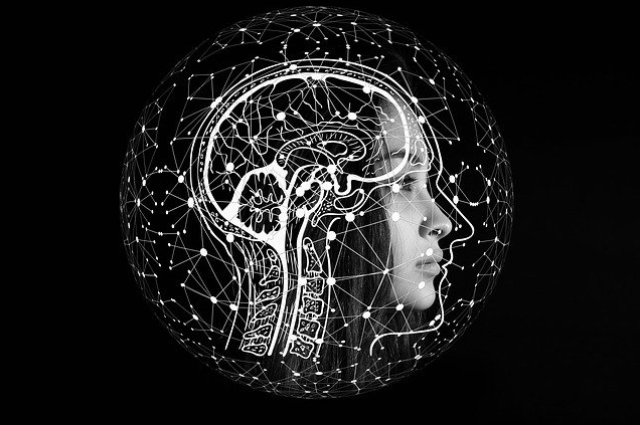
Image by Gerd Altmann from Pixabay
The beauty of literature is that it enhances and broadens one’s perspective with the aid of numerous genres. Amid the vast cosmos of literature, every genre has its exquisiteness and charisma. It’s stimulating to analyze the plentiful genres I’ve read; how different, each is crafted. Undoubtedly, it is a tough one for an avid reader to zero in on a particular genus. With adventure mysteries, romances, spy thrillers, as the most common shelf-fillers, there are plenty of diamonds in the rough which go unacknowledged. One such underdog which has had me engrossed from the moment my attention fell on it is dystopian fiction.
This genre has a certain appeal to many than the others. For starters, I like dystopian novels because they are linear and diverse. Dystopian fiction offers a vision of the future, coming under the hood of speculative fiction, exploring socio-political structures which portray a setting that is controversial with the author's percept. It relates to and is marked by an abstract society where mass suffering or injustice prevails. The societies set in these, are ones undergoing cataclysmic decline -Prone to dehumanize- with characters facing trials of environmental devastation, technological control, and government oppression.
With information, independent thought, and freedom restricted in the parallel cosmos, dystopia challenges its readers to change their view about their own society, and in some cases, even inspire action.
Dystopias give didactic suggestions and draft our current society and its short-terms altering into an anticipating version of the future. I think of it as a way of educating and warning humanity, about the dangers upcoming from our current social and political structure, in an engrossing fashion. Suzanne Collins's The Hunger Games[1] takes place in the fictional world of Panem, a futuristic nation on the ruins of North America. It cautions against the oppressive exercise of political control by a totalitarian Government, called the Capitol. Dystopia usually induces elements of contemporary civilizations, and thus can be deciphered as political warnings…
Dystopian fiction can be a way to educate and warn humanity about the dangers of the prevailing socio-political structures. One of literature's most celebrated authors of dystopian fiction, Margaret Atwood’s The Handmaid’s Tale[2] takes place in Gilead, a place in the futuristic United States. It attentions against oppressive patriarchy.
In George Orwell’s 1984 [3] The fictional Dictator Big Brother enforces ubiquitous surveillance over the citizens residing in the three inter-continental superstates remaining after a world war, a Discernable example of the world being under complete government control.
The one characteristic feature of this genre that has me in, is that it tells of environmental disasters. Dystopias dwell in places that are inhabitable, have been destroyed, or are preparing for it. They show the after-effects of nature exploitation, venturing across the ruins of a place that was once biodiverse. James Dashner’s The Maze Runner[4] Trilogy documents the demolition of the dystopian world by the hazardous man-made flare virus, resulting in the extermination of the entire human race except for a few immunes.
William Golding’s Lord of the Flies[5] is about a group of schoolboys abandoned on an island after a plane catastrophe during a fictional atomic war, between whom conflicts emerge, as they struggle to build a civilization and fight to survive. The tyrannical powers and destruction in dystopian worlds frequently leave the inhabitants to forfend for themselves. This brings in the element of survival as a subpart of a dystopia, which is engaging and makes the book unputdownable.
A facet that characterizes a dystopia is the loss of character. Many dystopian futures depict the dangers of conformity among individuals. The Giver[6] by Lois Lowry is a YA dystopia featuring a society that has no pain as it has been converted into “Sameness.” This state of numb indifference states the deficit of individualism.
Nothing is more intriguing than being gripped by a reality that is different from your own. I love the detailed imagery of the alternate world, and how it absorbs the reader and contemplates to make him a part of it. It isn’t unlike the sort of fiction, which invites the suspension of reality.
The best thing about this genre, that I find so compelling, is that dystopia is derived from our life experiences and embellished into the world of a futuristic era. Aspects of dystopian fiction translate well into the reader’s thoughts, largely because the worlds are so relatable and visually striking.
As Dr. Seuss has precisely phrased, “Reading can take you places you have never been before”, A good dystopia can make you go more places than your passport ever will.
. . .
Bibliography:
- Collins, Suzanne. The Hunger Games. Scholastic Press, 2008
- Atwood, Margaret. The Handmaid’s Tale. Penguin Random House, 1985
- Orwell, George. 1984. Secker & Warburg, 1950
- Dashner, James. The Maze Runner. Delacorte Press, 2009
- Golding, William. Lord of the Flies. Faber and Faber, 1954
- Lowry, Lois. The Giver. Houghton Mifflin, 1993
